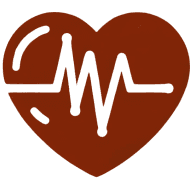Which Changes Can Improve Cardiac Care for Patients?
In the quest for enhanced cardiac care, embracing innovation and holistic approaches could be the game-changer. From real-time health monitoring to personalized treatment strategies, the potential for positive patient outcomes has never been greater. Discover how technology, preventive measures, and integrated support can transform the heart health landscape.
- Use Technology for Real-Time Monitoring
- Prioritize Preventative Lifestyle Changes
- Improve Access to Specialized Care
- Integrate Mental Health Support
- Develop Personalized Treatment Plans
- Increase Patient Education and Tools
Use Technology for Real-Time Monitoring
As a cardiologist, using technology like remote monitoring and wearable devices has made a big difference in how I care for patients and has improved their outcomes. These tools let me track important heart health measurements, like heart rate and blood pressure, in real-time. This means I can spot problems early and make changes to treatment quickly, helping patients avoid serious complications.
One example is a 65-year-old patient of mine with atrial fibrillation. He started using a wearable device that monitored his heart rhythm continuously. The device alerted us to irregularities that suggested another episode might be coming. Because we caught it early, I adjusted his medication, and we avoided a hospital visit. The patient was relieved to know his condition was being watched without needing frequent appointments.
Using these technologies has helped my patients stay healthier and more confident about their care. It's also reduced hospital visits and made managing heart conditions easier for both patients and doctors.

Prioritize Preventative Lifestyle Changes
Focusing on preventative lifestyle changes could significantly improve cardiac care for patients. Encouraging regular exercise, balanced diets, and avoiding smoking can help in reducing the risk of heart diseases. Educating the public on the importance of these habits is essential in creating a healthier society.
Preventative care reduces the need for more expensive treatments in the future and improves overall well-being. Healthcare providers should prioritize these measures to promote long-term heart health. Let us work together to make lifestyle changes a key component of cardiac care.
Improve Access to Specialized Care
Improving access to specialized cardiac care ensures that patients receive the most advanced treatments available. Remote areas often lack these specialized services, which can delay diagnosis and treatment. Investing in telemedicine and mobile health units can bridge this gap and provide timely care to those in need.
By ensuring that everyone, regardless of location, has access to expert cardiac care, we can reduce fatalities and enhance recovery outcomes. Policymakers and healthcare organizations must unite to make specialized cardiac care more accessible. Reach out to local representatives to advocate for better cardiac care facilities.
Integrate Mental Health Support
Integrating mental health support in cardiac care recognizes the strong link between mental and heart health. Anxiety, depression, and stress can worsen cardiac conditions, making comprehensive care essential. Offering counseling and stress management programs alongside traditional cardiac treatments can improve patient outcomes.
Addressing mental health helps in curbing the overall burden of heart disease. Hospitals and clinics should incorporate mental health professionals into their cardiac care teams to offer holistic treatment. Let's advocate for mental health to be a standard part of cardiac care.
Develop Personalized Treatment Plans
Developing personalized treatment plans acknowledges that each patient’s condition is unique. Tailoring treatments based on individual needs, genetics, and lifestyle can enhance the effectiveness of cardiac care. Personalized plans ensure that patients receive the most suitable medications, procedures, and lifestyle recommendations.
This approach also increases patient compliance, as they feel more understood and involved in their care. Medical teams should focus on creating and following bespoke treatment plans for optimal results. Encourage healthcare providers to adopt personalized approaches for the best care possible.
Increase Patient Education and Tools
Increasing patient education and self-management tools empowers patients to take control of their heart health. Knowledge about one’s condition, treatment options, and lifestyle modifications is crucial in managing heart diseases. Providing resources such as workshops, online modules, and support groups can enhance understanding and engagement.
When patients are well-informed, they are more likely to adhere to treatment plans and make healthier choices. Educators and healthcare providers need to collaborate to develop comprehensive educational programs for patients. Get involved in community health initiatives to promote better patient education.

